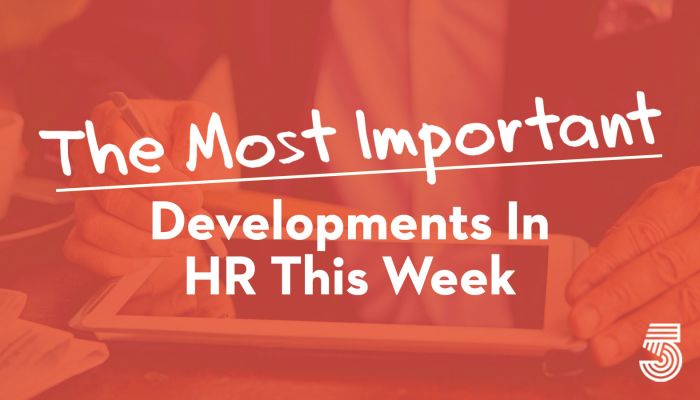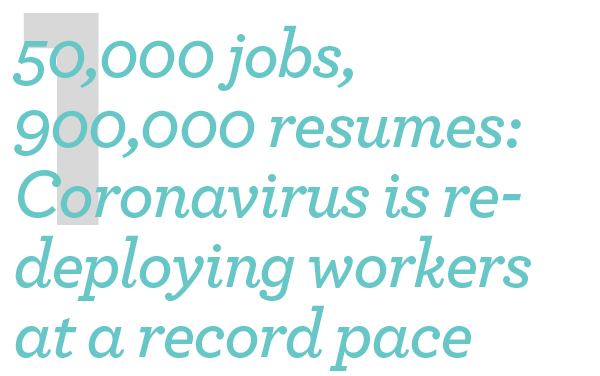
CVS, where Jeff Lackey heads up talent acquisition, is now taking on the most ambitious hiring drive in its history. To recruit the 50,000 staffers it needs to meet a coronavirus-fueled surge in business, it is partnering with Gap Inc., Hilton Worldwide Holdings, and dozens of others to employ their laid-off workers. Across the economy, thousands of workers are being redeployed in one of the fastest labor shifts in postwar history. As the coronavirus reshapes consumer needs and behaviors overnight, some workers are jumping into new roles within their companies. Others are being recruited by new employers through collaborations unthinkable in the intensely competitive labor market that existed just a couple of months ago. The efforts amount to a human resources challenge for companies moving people around or hiring new employees. Gap Inc., which recently furloughed 80,000 workers, is encouraging them to take temporary part-time jobs, including at CVS and a handful of other companies it is collaborating with. Similar collaborations are popping up around the world. WSJ
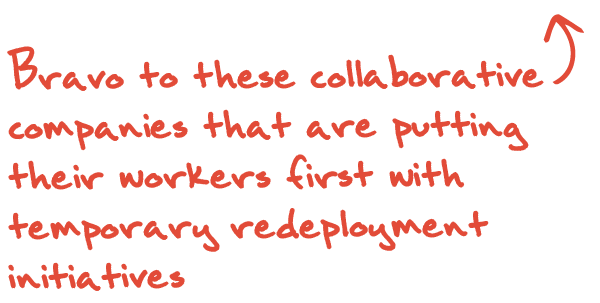
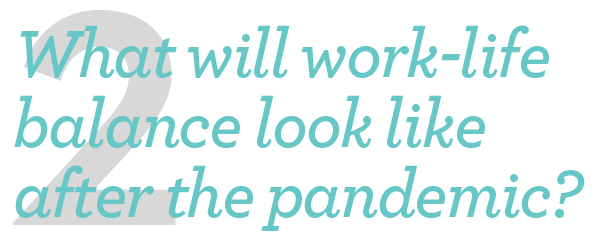
The COVID-19 crisis has shoved work and home lives under the same roof for many families, and the struggle to manage it all is now visible to peers and bosses. As people postulate how the country may be forever changed by the pandemic, we can hope that one major shift will be a move away from the harmful assumption that a 24/7 work culture is working well for anyone. Now is a time for companies to step back and reexamine which traditional ways of working exist because of convention, not necessity. Executives and managers have the opportunity to choose quality of work over quantity of work. They can value the creative ideas that emerge after a midday hike or meditation session, rather than putting in face time at the office. They can stop rewarding the faster response over the better response, or the longer workday over a more productive workday. They can rethink highly competitive career tracks where you make it or wash out. During this pandemic, employers are seeing that workers can’t function well without accommodation for their family responsibilities. Will that lesson last after the crisis is over? Harvard Business Review
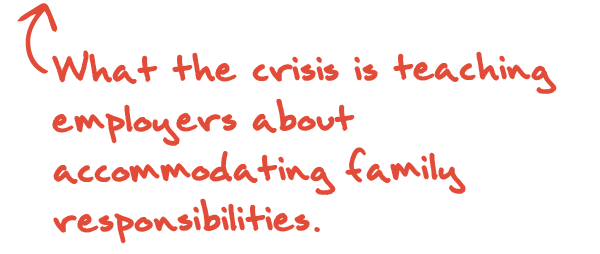
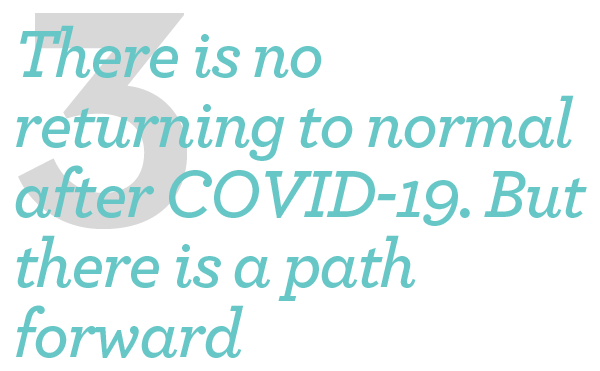
After weeks of the spread of the COVID-19 pandemic and widespread lockdown, we must now take stock of how the crisis has disrupted the strategic decision-making framework for organizations and try to build a new one to look beyond the immediate crisis. One of the classic strategic frameworks used by businesses for sustaining growth in normal times is McKinsey & Company’s “three horizons” framework. Horizon one initiatives are the core business initiatives that provide the most value today. Horizon two initiatives are those that address proven new opportunities on the cusp of scale-up. Horizon three initiatives are the long bets, often based on the expectation of disruptions — they are the realm of visionaries and futurists. But what happens when a major disruption like the COVID-19 pandemic hits the global economy in a massively accelerated time frame? Suddenly we are through the looking glass: the horizons are turned around, and a world envisioned only by futurists is playing out in real time on data terminals, social network feeds, and television screens. Almost overnight, horizon three has now become horizon one, as fashion houses scramble to convert production lines to make surgical masks, automotive companies to produce ventilators, and brewers and perfume houses to make hand sanitizer. World Economic Forum
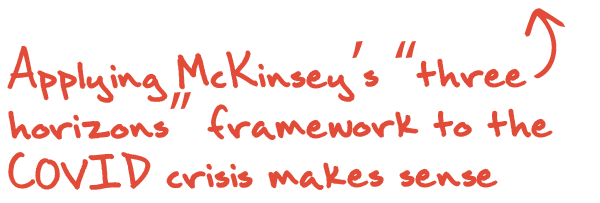
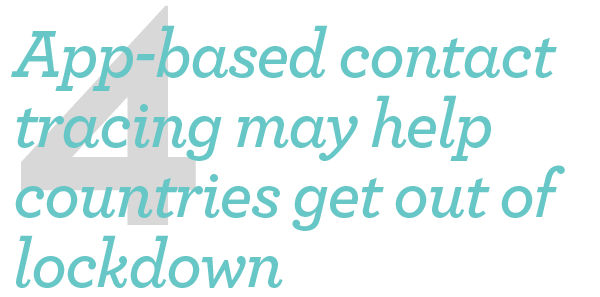
Apple and Google did something unusual: they announced plans to work together. Their plan is to combine their assets to assist the tracking of the covid-19 pandemic. Normally, collaboration between two such oligopolists would raise eyebrows to the roof. But these are not normal times. Tracing who is infected is essential to controlling the transmission of sars-cov-2, the virus causing the pandemic—and the ubiquity of mobile phones makes them plausible agents for doing so. The two firms’ networks will be joined together by a unifying update to their Bluetooth short-range wireless protocols. America, Britain, Germany, Ireland and many other countries were already building apps to track infection. They will now rewrite their software to take advantage of this new arrangement. The Economist
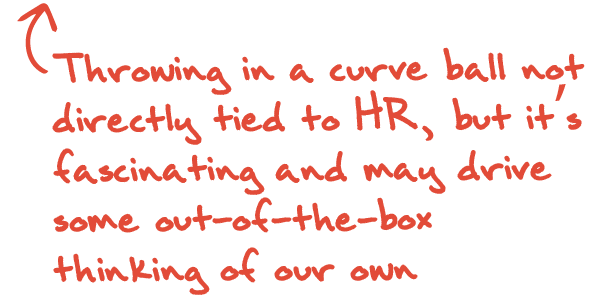
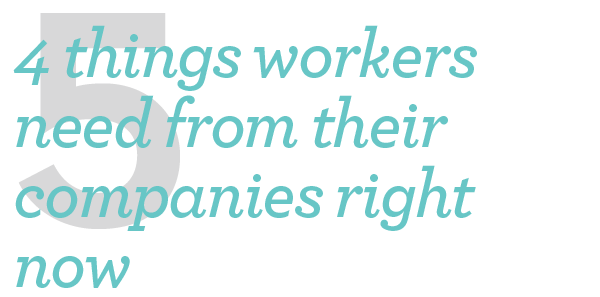
Business leaders should take note: How a company handles the people it lets go is noticed by employees, as well as by customers and partners. And a failure to prioritize worker concerns could cause a further deterioration in trust in the business while also prolonging the crisis by neglecting the health of families and the economy. Business leaders should address four priorities. Physical health: Safety and cleanliness have shot to the top of workplace concerns. Financial health: Sick pay is essential for all workers; a pandemic is not the time to force employees to work because they can’t afford to forgo wages when ill. Emotional health: The best leaders communicate with their workers regularly about unfolding events. Community health: Those who have lost their jobs might also be put back to work performing other useful tasks, while still receiving their unemployment benefits. Could they offer online training in areas where they have skills? Could they become financial mentors? Could they work as tutors for local schools? CNN







